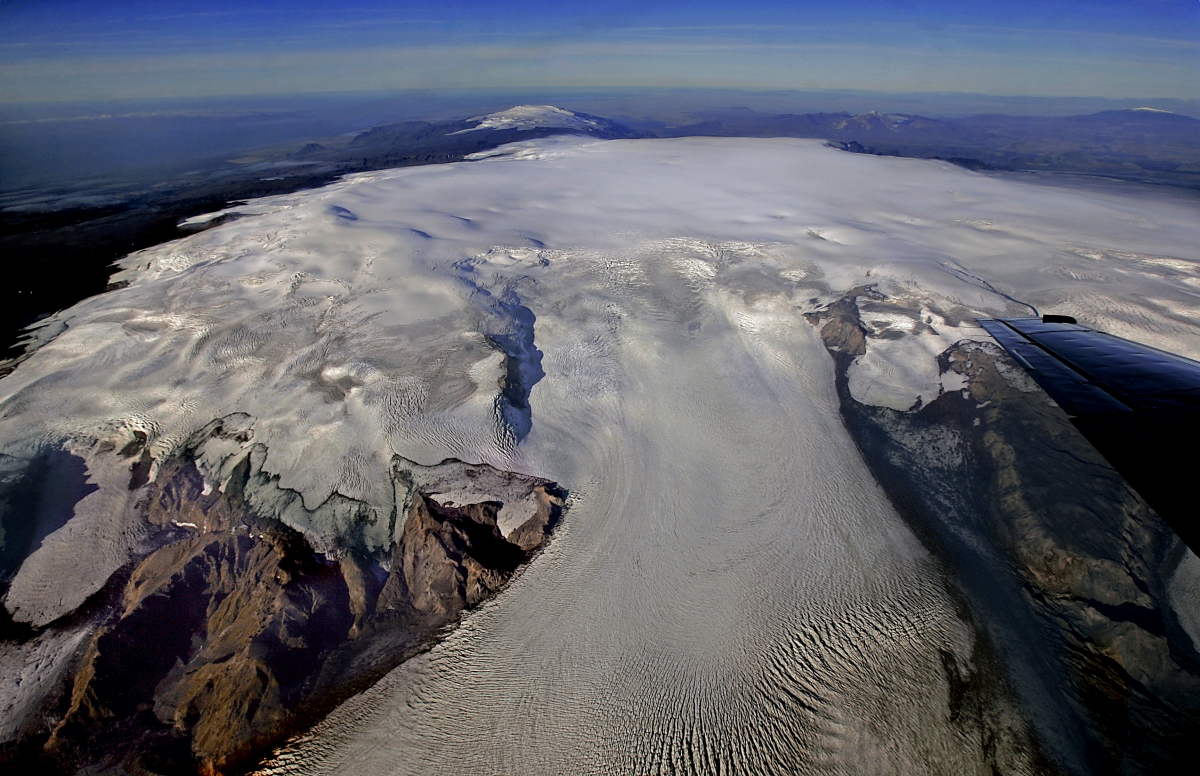Seventy per cent of glacier ice in British Columbia and Alberta could disappear by the end of the 21st century due to climate change. This is the result of a recent study by an international group of scientists based in Canada and Iceland. Alexander H. Jarosch, a Research Associate Professor in Glaciology at the University of Iceland’s Institute of Earth Sciences, has been part of the research team. This level of deglaciation could create major problems for local ecosystems, power supplies, and water quality in the area. An article based on this research has been published online in the scientific journal Nature Geoscience on 6 April.
http://www.nature.com/ngeo/journal/vaop/ncurrent/full/ngeo2407.html
The article “Projected deglaciation of western Canada in the twenty-first century”, states how Alex Jarosch and his colleagues developed new computer models to predict with more precision the deglaciation of western Canada; covering a total of 17 thousand glaciers. The novel scientific value of their work is that for the first time ever a regional glaciation model has been used which explicitly includes ice dynamics (the movement of glaciers) based on physics and incorporates all important glaciological processes in a coupled manner. This has been done for individual small glaciers but never for such a large region. During their study the scientists used remote sensing data of the area, computer models and climate scenarios from the Intergovernmental Panel on Climate Change (IPCC) on greenhouse gas emissions worldwide; such emissions are considered the main cause of global warming in the coming decades.
By using the methods described above the scientists discovered that climate change is a real threat to many glaciers in Western Canada, but that the speed of their retreat will vary. According to the simulations, few glaciers will remain in interior British Columbia and the Rocky Mountains, but maritime glaciers, in particular those in north-western British Columbia, will survive in a diminished state. The study projects the maximum rate of ice volume loss, corresponding to peak input of glacial meltwater to streams and rivers, to occur around 2020–2040. Potential implications include impacts on aquatic ecosystems, agriculture, forestry, alpine tourism and water quality.
The glaciers in British-Columbia and Alberta provide a vital supply of water in northwest America. Increased deglaciation will furthermore impact the production of electricity in hydro-electric power plants in the area as well as agriculture on both sides of the Canadian and American border. The retreat of mountain glaciers worldwide will cause sea levels to rise and that in turn can affect populated areas along the coastlines.
The research discussed in the article in Nature Geoscience has been ongoing since 2007. During the beginning of this study until the end of 2009, Alex Jarosch was a PostDoc at UBC with Garry Clarke, the main author of the article. Most of his work was focused on designing and coding the model framework used in this study. The research team has continued their collaboration after Alex Jarosch moved back to Iceland and joined the team of glaciologists at the University of Iceland’s Institute of Earth Sciences. In addition to Alex Jarosch and Garry Clarke, scientists from two other Canadian Universities have participated in the research.
Alex Jarosch points out that the same set of methods can be applied to predict change in glaciers in other parts of the world, including Iceland. Such a project is actually planned here at UI within the glaciology group in the near future.
This study has received great attention and has been discussed in mainstream media all over the world:
http://www.theguardian.com/environment/2015/apr/07/canada-glaciers-to-shrink-70-by-2100




